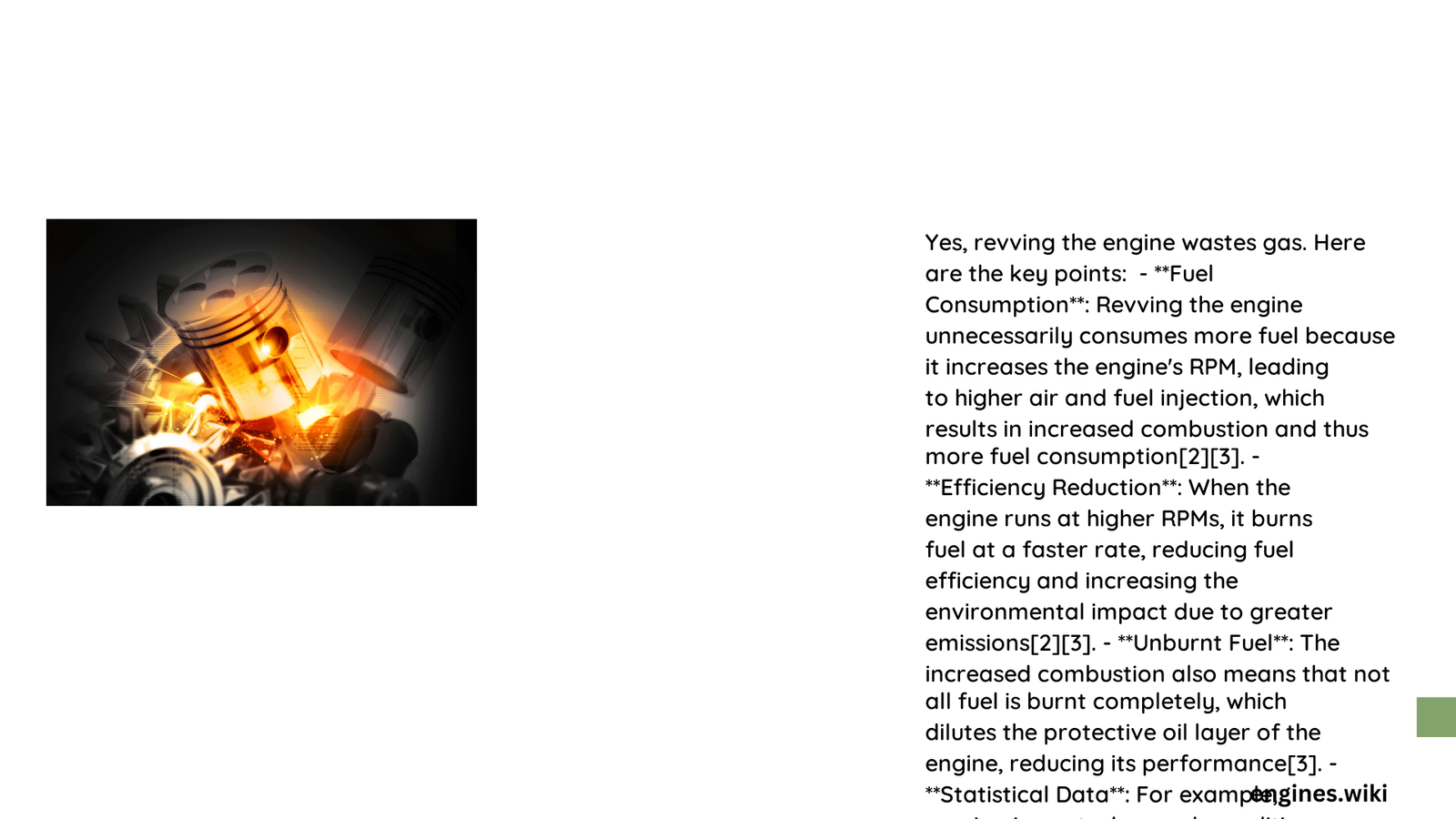Revving an engine can significantly impact fuel consumption, with potential waste ranging from 20-50% more fuel compared to standard driving conditions. Vehicle owners often misunderstand the relationship between engine RPMs and gas usage, leading to unnecessary fuel expenditure. Understanding the precise mechanics of engine performance can help drivers optimize their fuel efficiency and reduce unnecessary gas waste.
What Happens When You Rev an Engine?
Revving an engine involves rapidly increasing the engine’s rotational speed beyond normal operating ranges. This action creates several immediate consequences for fuel consumption and overall vehicle performance.
How Does Engine Revving Affect Fuel Consumption?
When you rev an engine, multiple factors contribute to increased gas usage:
- Increased Friction: Higher RPMs generate more internal engine friction
- Enhanced Energy Demand: More fuel is required to maintain accelerated engine speeds
- Inefficient Combustion: Rapid acceleration reduces combustion efficiency
| RPM Range | Fuel Consumption Impact |
|---|---|
| 2000-3000 | Moderate Efficiency |
| 3000-4500 | Increased Fuel Usage |
| 4500+ | Significant Gas Waste |
What Causes Unnecessary Engine Revving?
Several driver behaviors contribute to unnecessary engine revving:
- Aggressive acceleration
- Warming up the vehicle excessively
- Showing off engine performance
- Misunderstanding proper engine operation
Quantifying Fuel Waste During Engine Revving

Research indicates that prolonged or frequent engine revving can waste:
- City Driving: 5-10 miles per gallon reduction
- Highway Driving: 3-7 miles per gallon reduction
- Idle vs. Revving: Up to 0.5-1.0 gallons per hour additional consumption
How Can Drivers Minimize Fuel Waste?
Practical strategies to reduce unnecessary gas consumption include:
- Maintain consistent, moderate acceleration
- Use cruise control on highways
- Avoid prolonged warm-up periods
- Follow manufacturer’s recommended RPM ranges
- Perform regular vehicle maintenance
Technical Insights into Engine Efficiency
Modern engines are designed with specific efficiency parameters. The optimal fuel consumption typically occurs:
- Gasoline Engines: Around 2000-3000 RPM
- Diesel Engines: Approximately 1500-2500 RPM
What Are the Long-Term Consequences of Frequent Revving?
Consistent high-RPM driving can lead to:
- Accelerated engine wear
- Increased maintenance costs
- Reduced overall vehicle lifespan
- Higher fuel expenses
Expert Recommendations
Automotive engineers suggest:
- Monitor your tachometer during driving
- Understand your specific vehicle’s performance characteristics
- Practice smooth, consistent acceleration
- Avoid unnecessary high-speed engine operations
Conclusion
While occasional engine revving might seem harmless, it can substantially impact fuel efficiency and vehicle longevity. Drivers who understand and implement efficient driving techniques can significantly reduce gas waste and maintenance costs.
